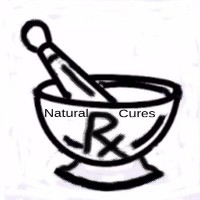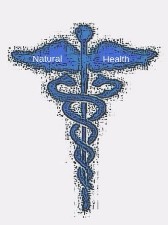 [ Home ]
[ Terms And Conditions ]
[ Contact Us ]
[ Privacy Policy ]
[ About Us ]
[ Home ]
[ Terms And Conditions ]
[ Contact Us ]
[ Privacy Policy ]
[ About Us ]
HOW TO TREAT HEMORRHOIDS
If you're a regular visitor to my Natural Health websites, then you will agree that when I come across an amazing find that I can't wait to share it with my readers. I think that you're really going to like this.
Since you came here to learn how to treat hemorrhoids then you should know that 95% of people using conventional hemorrhoid cures only achieve temporary success and often actually end up worse. But the good news is that there is a way to treat hemorrhoids that will put you in the 5% that are successful.
If you'll stick with me for just a minute you will learn how to treat hemorrhoids naturally from home in as little as 48 hrs and download the free hemorrhoid cure report. An important factor that the medical community neglects to tell hemorrhoid sufferers is that most methods of treating hemorrhoids, including surgery and over-the-counter remedies, are not actually cures. They are simply removing the symptoms temporarily, which in the case of hemorrhoids is the swollen vein. There are, however, fast acting treatments for hemorrhoids that will get rid of your symptoms AND treat the underlying cause thereby preventing their return. The holistic hemorrhoid treatments that I'm referring to are all natural and can cure hemorrhoids in as fast as 48 hours. I'll get into this more in depth later. But first a quick lesson about what hemorrhoids symptoms are and what hemorrhoids causes are.

The Different Types Of Hemorrhoids : External Hemorrhoids And Internal Hemorrhoids Treatment
Let's start with a quick explanation of what hemorrhoids are. Hemorrhoids are simply vascular structures in the anal canal that act as cushions to help with stool control. It's when they become inflamed or swollen that there is a problem. There are basically 2 types of hemorrhoids (also referred to as piles). The first is the internal type which occurs inside the anal canal. These tend to be more itchy than painful. And the result of hemorrhoids bleeding and protruding make it sometimes difficult to clean the area. The second type is the external type. These usually don't require medical attention as long as a clot doesn't develop. Of the 2 types these tend to be more painful.
The severity of hemorrhoids is described as being First-degree (where the hemorrhoid does not protrude from the anus) through Fourth-degree (where it protrudes all of the time). The problem with surgery is that it usually cures hemorrhoids, however the success in the long-term for hemorrhoid surgery depends a great deal on how successful the patient is in changing their daily bowel habits (hoping to avoid any constipation and the straining it causes).
Classic Hemorrhoid Signs And Symptoms : What do hemorrhoids look and feel like?
An external hemorrhoid is defined as one that is outside the anal cavity that usually is felt as a bulge in the anus. At times they might not cause the usual symptoms, however they are often itchy and painful. In some cases a skin tag may remain after the hemorrhoid is healed.
An internal hemorrhoid would be defined as being inside the anal cavity. The symptoms can include what is often called a sensation of fullness, meaning that the individual feels as though they need to have a bowel movement whether there is any stool present or not. The discomfort only becomes worse if the person strains. The act of defecating is usually accompanied by painless rectal bleeding. It should be noted that blood in the stool (hematochezia) may be a symptom of other serious conditions so it should be examined by a medical professional.
Sometimes when the hemorrhoids prolapse (can be seen outside the anus), there is irritation, itchiness, a painful lump, swelling, fecal incontinence, and possibly even acute pain in the area around the anus. This may also result from the hemorrhoid becoming twisted, a blood clot developing (also referred to as a thrombosed external hemorrhoid) or by becoming necrotic. These may also need to be examined by a health professional.
What Is The Cause Of Hemorrhoids? : Why do piles happen?
If you had to point to the one factor that increases the risk of hemorrhoids the most it would probably be abdominal pressure. There are a number of things that can increase the pressure inside the abdomen resulting in a greater likelyhood of hemorrhoid formation. These would include spending extended periods of time on the toilet (often as a result of diarrhea or constipation), ascites, or an intra-abdominal mass (such as a fetus during pregnancy). Some other risk factors of lesser severity would include pelvic floor dysfuncion, persistent coughing, and even obesity. Hemorrhoids brought on by pregnancy usually resolve themselves after the birth.
What Do You Do For Hemorrhoids? : How To Treat Hemorrhoids With The Various Methods
First let's take a look at some of the more conventional treatments that you may have been considering (that often don't work very well). The typical treatment methods for hemorrhoids include home treatment, nonsurgical fixative procedures, and finally surgery. These treatments may lead to disappointing results.
Hemorrhoids Surgery : When should you go to the doctor for hemorrhoids?
This option, called a hemorrhoidectomy, is a surgical removal of the hemorrhoid and is one of the most common ways of how to treat internal hemorrhoids that have become very large. If the internal hemorrhoids are small they are usually only treated with surgery if there are more than one hemorrhoids present, if there is uncontrolled bleeding, or if both external and internal hemorrhoids are involved. This is usually (and should be) done as a last resort.
Fixative
What a fixative procedure attempts to do is to restrict the supply of blood that the hemorrhoid receives. In theory this causes the hemorrhoid to eventually shrink. These types of treatments, that are considered to be nonsurgical in nature, are usually able to cure most smaller and occasionally some of the larger internal hemorrhoids.
Home Treatment
The types of methods commonly used to treat hemorrhoids at home mainly involve over the counter remedies (hemorrhoids cream, ointments, nonsteroidal anti-inflammatory drugs "NSAIDs" etc) and having healthier bowel habits. These are a lot easier but tend to have a low success rate. But don't let that discourage you. There is a fast and effective natural way to treat hemorrhoids without the painful procedures and their side effects. And this hemorrhoid treatment is guaranteed to work.

How To Treat Hemorrhoids With These Simple Prevention And Self-Help Tips
1. Probably the easiest rule is "Do not delay going". Delaying a bowel movement can make constipation even worse, which causes and aggravates hemorrhoids. So don't wait until it is more convenient. Defecate as soon a possible.
2. Try elevating your feet with a step stool (it doesn't have to be much) while sitting on the toilet. Doing this will change the position and angle of the rectum such that it may allow the stool to pass through more easily with less discomfort.
3. Try lubricating. Now this isn't as weird as it sounds. It simply means to mix mineral oil (about a table spoon) with your breakfast or lunch. This will permit the stool to slip past the hemorrhoid without incident. The main hazard of doing this is the possibility of anal leakage, so only do this for short periods of time.
4. Adding fiber supplements to your diet will do wonders. Ideally this should be done with the food you eat, but it is not always possible to get the 20 - 30 grams of dietary fiber that you need every day. If you need to take a supplement begin with something like Metamucil. This may cause bloating (from gas) because it contains primarily psyllium. If this is the case you may have to use a product made with methylcellulose or dextrin (from wheat).
5. The use of sitz baths. This is simple to do and can offer some relief. What it is (in case you never heard of one) is a basin that goes beneath the toilet seat. You then soak the hemorrhoid area for roughly 10 minutes. This is usually done 2-3 times every day, or as needed.
6. Try one of the many topical agents, suppositories or many over-the-counter remedies that are on the market. These usually contain active ingrediants such as zinc oxide or petroleum jelly, epinephrine (vasoconstrictor), and lidocaine (analgesic). The most common products consist of pads that have been infused with witch hazel and creams, such as Preparation H. Anything that is steroid based should be limited to 14 days or less. Also Balsam of Peru is sometimes used but may cause an allergic reaction and flavonoids don't seem to do any good.
These tips may offer some relief of the symptoms, but if you want to get rid of hemorrhoid symptoms forever you need get to the root of the problem.
Are there any risks of not treating my hemorrhoids?
Well, simply put, if you decide against treating your hemorrhoids then you most likely will continue to experience discomfort, the pain, or even possibly bleeding (which if it is bad enough could cause anemia). And they are probably going to get worse. Therefore, my recommendation is to use a holistic method since they are natural (safer) and a LOT more effective. These techniques treat not only the symptoms but also the cause so that the hemorrhoids do not return.
The All Natural Cure That Works
My research leads me to give the H Miracle system my highest recommendation . This is the most complete and most effective holistic remedy system I have found. The reason I recommend the H-Miracle method so highly is that every natural holistic method found within this system has an amazing success rate, even for the most stubborn cases. From the simple exercises and diet, to the "secret" Chinese remedy, their system is so complete that the wealth of information it contains may actually seem a little overwhelming. So you might want to take notes when you're going through it. So use these natural remedies and don't waste any more time and money on junk that doesn't work (or worse, has dangerous side effects).
The Decision Is Simple
Look, you came to this site for the same reason that everyone else did. You're tired of suffering with this. So do what so many others who came to this site have done. They took action. Hemorrhoids can get worse over time, which makes them much harder to eliminate. So procrastinating is the worst thing you can do. You can choose to do nothing, OR make a positive decision and try this FAIL-SAFE remedy that's GUARANTEED to work (without the side-effects).
You can begin to heal your hemorrhoids immediately by clicking here or on the banner below to check out the H Miracle site and to receive your free report. You don't have to suffer any longer.
I wish you the best of health.

Reference Materials For Further Study
I have added this section as 2017 update. It is meant for those who wish to do a deeper medical study of how to treat hemorrhoids.
Epidemiology
At any given time approximately 5% of the population of the US is experiencing hemorrhoid symptoms and about 50% will experience them during their lifetimes. The most affected age group is 45-65 years old with men and women being affected at the same rates. Long term cure rates are quite good with very few ever requiring surgery.
Pathophysiology
Hemorrhoids (when they are not swollen and problematic) are a normal part of the human body. They are cushions in the anal canal that control continence and are protection for the internal and external anal sphincter during defecation. At rest they provide anal closure pressure. These cushions do not consist of veins or arteries. They consist of smooth muscle, connective tissue and sinusoids (blood vessels without muscle tissue in their walls). These make up the inferior hemorrhoidal plexus (external) and the superior hemorrhoidal plexus (internal) being divided by the dentate line.
Diagnosis
Hemorrhoids are most commonly diagnosed during a physical exam, Prolapsed or external hemorrhoids may be diagnosed with a visual exam of the area. An internal hemorrhoid may be diagnosed during a rectal exam, during which time other problems such as an enlarged prostate, abscesses, polyps or rectal tumors may be found as well. An anoscopy can confirm the diagnosis of an internal hemorrhoid. If there is a great deal of pain present then the diagnosis is often a thrombosed external hemorrhoid or an anal fissure.
Internal Hemorrhoids - Internal hemorrhoids are generally less painful since they are covered with columnar epithelium (which do not have pain receptors). They are diagnosed by their severity (amount of prolapse) into 4 grades.
External Hemorrhoids - External Hemorrhoids are diagnosed as being below the pectinate line. They are covered by skin and anoderm (which do have pain receptors) making them generally more painful.
Differential - There are a number of anorectal conditions that may present symptoms that are similar to hemorrhoids and may lead to an incorrect diagnosis. These would include: abscesses, fistulae, rectal varices, fissures, itching, or colorectal cancer.
Often an anal mass may be mis-diagnosed as a hemorrhoid. These would include: rectal prolapse, anal warts, polyps, enlarged anal papillae, or skin tags.
Increased blood pressure in the portal venous system (portal hypertension) may cause anorectal varices and an incorrect diagnosis. And often times diverticular disease, angiodysplasia, or colitis (including inflammatory bowel disease) may be the cause of rectal bleeding.
Management
Office Procedures
The most common hemorrhoid procedures would be :
- Sclerotherapy - The intent here is to make the vein walls collapse thereby causing the hemorrhoid to shrivel up. This is accomplished by injecting phenol (or some other sclerosing agent) into the hemorrhoid. This usually has a successful hemorrhoid cure rate of approximately 70% 4 years after the procedure.
- Rubber Band Ligation - The idea here is cut off the flow of blood to the hemorrhoid. This is done by applying elastic bands onto an internal hemorrhoid 1 cm above the dentate line. The hemorrhoid withers and falls off after about 5-7 days. This treatment has success about 87% of the time. Complications occur in about 3% of patients.
- Cauterization - This is usually done by using laser surgery, cryosurgery, electrocautery, or infrared radiation (for grade 1-2 hemorrhoids). Cauterization is considered as sort of a procedure of "last resort".
Although most of these types of procedures are usually safe, in rare instances there may be side effects like perianal sepsis which could be serious.
Surgery
If the simple office procedures mentioned above don't work then there are different surgical techniques that may be employed. They include :
- Stapled Hemorrhoidectomy (stapled hemorrhoidopexy) - Is recommended for grade 2-3 hemorrhoids. It Is less painful and faster healing than an excisional hemorrhoidectomy since it removes only the tissue that is abnormally enlarged then returning the non hemorrhoidal tissue to its correct position. It does, however, have a lower long term cure rate.
- Doppler-Guided, Transanal Hemorrhoidal Dearterialization - This prolapsed hemorrhoid treatment has the least amount of complications but a slightly lower long term cure rate. It is done by accurately locating the arterial blood flow using an ultra sound doppler. The blood flow is then "cut off" and the prolapsed hemorrhoid is put back into its proper location and sutured into place.
- Excisional Hemorrhoidectomy - When a thrombosed external hemorrhoid is diagnosed, this is recommended to be performed within 1-3 days (followed by 2-4 weeks time to recover). It is a surgical excision of the external hemorrhoid and is usually only recommended in the most extreme cases.
There is the risk of complications (as with any surgery) that include anal strictures, urinary retention, bleeding, infection, and fecal incontinence. Mucosal ectropion (kind of like a mild rectal prolapse) is also possible.
References
What Are Hemorrhoids? http://www.webmd.com/digestive-disorders/tc/understanding-hemorrhoids-basics
Signs and symptoms of hemorrhoids may include: http://www.mayoclinic.org/diseases-conditions/hemorrhoids/basics/definition/con-20029852
Simple treatments to help ease the pain and trouble associated with hemorrhoids or piles. http://www.health.harvard.edu/diseases-and-conditions/hemorrhoids_and_what_to_do_about_them
About Enlarged Hemorrhoids http://www.ncbi.nlm.nih.gov/pubmedhealth/PMHT0024809/
Your doctor can often diagnose hemorrhoids based on your medical history and a physical exam. https://www.niddk.nih.gov/health-information/health-topics/digestive-diseases/hemorrhoids/Pages/facts.aspx
Searching Online for 'Hemorrhoids'? http://www.fda.gov/ForConsumers/ConsumerUpdates/ucm338906.htm
Symptoms and discomforts of pregnancy https://en.wikipedia.org/w/index.php?title=Symptoms_and_discomforts_of_pregnancy&oldid=752829057
The ASCRS Textbook of Colon and Rectal Surgery: Second Edition https://books.google.ca/books?id=DhQ1A35E8jwC&pg=PA174
Symptoms of hemorrhoids depend on the type of hemorrhoid. https://www.niddk.nih.gov/health-information/health-topics/digestive-diseases/hemorrhoids/Pages/facts.aspx
Disclaimer: The materials presented on the pages of this website are not intended to diagnose, cure, treat or prevent any illness. Because the home treatments discussed come from a large number of resources (and therefore are difficult to verify), this natural hemorrhoid treatment website is meant to be used for educational purposes only. Never use any natural treatments without consulting your physician first to rule out serious causes of the symptoms. A sigmoidoscopy or colonoscopy is reasonable to confirm the hemorrhoid diagnosis and to rule out the possibility of a more serious condition. Any product being purchased from a link on this website may result in an affiliate commission being earned by the author. This is how we are able to operate and maintain this website.
Copyright © how-to-treat-hemorrhoids.tripod.com 2017
HOW TO TREAT HEMORRHOIDS
 [ Home ]
[ Terms And Conditions ]
[ Contact Us ]
[ Privacy Policy ]
[ About Us ]
[ Home ]
[ Terms And Conditions ]
[ Contact Us ]
[ Privacy Policy ]
[ About Us ]


